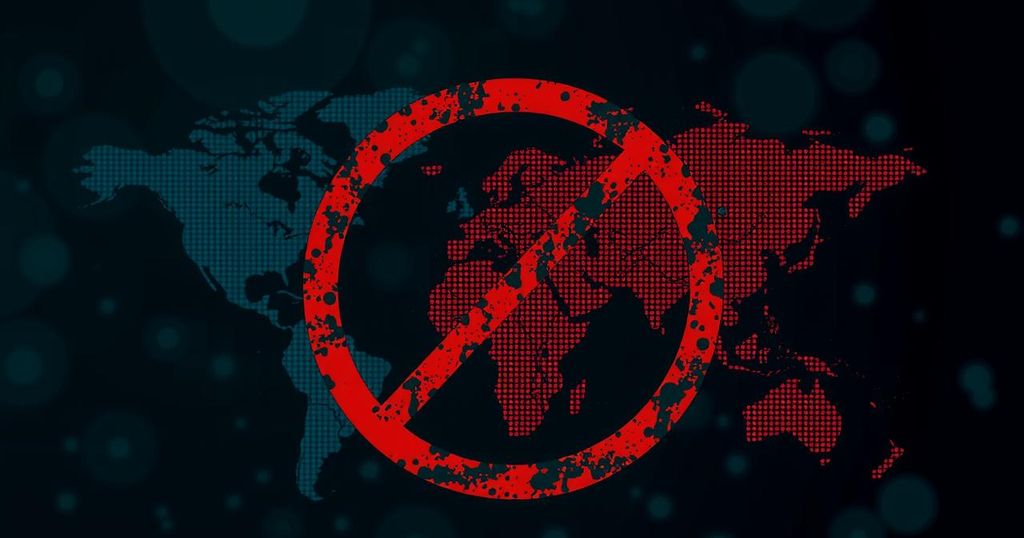Myanmar’s Internet Freedom Mirrors China’s, Report Reveals
A new report from Freedom House reveals that the state of internet freedom has suffered its 14th consecutive year of decline, with Myanmar and China ranking lowest globally in internet freedoms, scoring only nine out of 100. Myanmar’s military junta has imposed extensive online censorship and surveillance since their coup in 2021, further exacerbating challenges faced by activists and civilians. The report also highlights worsening internet conditions in numerous countries worldwide and underscores the increasing threats to free speech online.
A recent report by Freedom House highlights a grave decline in internet freedoms globally, signaling that Myanmar now shares the lowest rank in internet freedom with China for the year 2024, each scoring a mere nine out of 100. The report emphasizes how Myanmar’s military junta, which seized power in 2021, has aggressively targeted dissenting voices by enforcing severe restrictions on online expression. This includes widespread internet shutdowns and the establishment of a mass censorship and surveillance apparatus. Notably, new censorship technology introduced in May has inhibited access to virtual private networks (VPNs), previously vital for residents attempting to circumvent internet control. The report delineates the junta’s strategy to stifle pro-democracy activists and insurgent groups. It notes that individuals in Myanmar face critical challenges in accessing information online, affecting their ability to seek safety from military assaults and navigate severe economic hardships. The United Nations has echoed similar concerns, characterizing this repression as the onset of a “digital dictatorship”. In concert with the situation in Myanmar, the report details China’s continuous efforts to isolate its domestic internet, imposing strict regulations and fines related to VPN usage, furthering the authoritarian grip on information and expression in the country. The Chinese government maintains that its citizens enjoy all rights and freedoms per the law, rejecting the claims put forth in the Freedom House report. Wider trends indicate a persistent deterioration in internet freedoms across numerous countries, with 27 out of 72 countries surveyed experiencing negative developments. A staggering majority of individuals reside in nations where political, social, or religious opinions shared online could lead to arrest, while a record 43 nations have witnessed physical violence or killings as reprisals for online activism. Notable examples include harsh prosecutions in Thailand due to royal insult laws and significant restrictions on media in Kyrgyzstan under President Sadyr Japarov. Notably, Iceland has maintained the most favorable internet conditions globally.
The backdrop of the report is the alarming trend in global internet freedom, particularly in authoritarian regimes where governments are increasingly asserting control over digital spaces. The report draws particular attention to Myanmar and China, both of which now have equivalent, dire internet freedoms, following significant governmental actions and policies that stifle free expression and digital rights.
In conclusion, the findings of the Freedom House report underscore a critical juncture in global internet freedoms, particularly revealing the deteriorating conditions in Myanmar and China, which now rank together at the bottom tier. The report serves as a stark reminder of the challenges faced by individuals in these countries as they navigate an oppressive digital landscape filled with censorship and surveillance. Concurrently, the global outlook remains bleak, with significant risks for free expression and the safety of online activists becoming crucial matters of concern in many nations.
Original Source: www.cnn.com








Post Comment